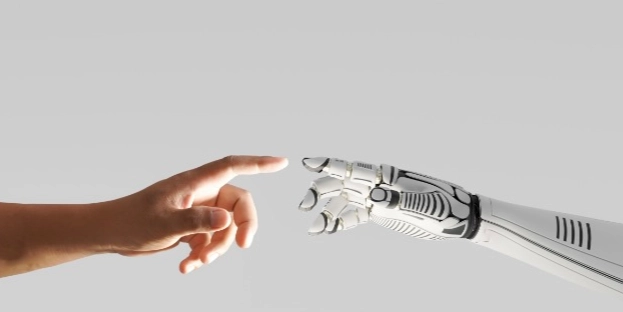The Future Of AI And Patient Advocacy: A New Era in Healthcare

In today’s rapidly evolving healthcare landscape, the role of patient advocates has become increasingly vital. We offer unwavering support and guidance to ensure patients receive the best possible care. As technology continues to advance, a new contender has emerged – artificial intelligence (AI). While AI significantly improves various industries, it cannot replicate the human touch and empathy that patient advocates bring.
The Unbeatable Duo: AI and Patient Advocates
Imagine a scenario where a patient is diagnosed with a complex medical condition. AI can process vast amounts of medical data, providing invaluable insights to patient advocates. This empowers advocates to make well-informed decisions, identify patterns, predict outcomes, and craft personalized treatment plans. It’s an efficient and effective way to leverage technology in patient care. However, as with any technology, questions arise about its 100% reliability. Can it sometimes feel like conducting a fast Google search that leads you down a rabbit hole? That’s where a patient advocate steps in to add the much-needed human touch.
The Human Touch and Empathy
However, as groundbreaking as AI may be, it cannot replace the profound understanding and connection that patient advocates establish through human-to-human interaction. Patient advocates are uniquely equipped to comprehend their clients’ journeys’ emotional and psychological aspects. They provide medical guidance and emotional support as a pillar of strength for patients and their families during challenging times.
For example, a patient of mine was in the hospital, and AI produced the typical length of stay for that specific diagnosis. The hospital tried to discharge the patient quickly based on the AI results; however, medical complications occurred. As their patient advocate, I discussed their conditions with the medical team to justify a safe discharge plan. While AI can analyze medical data and recommend treatment options, the patient advocate sits down with the patient, listens to their fears and concerns, and helps them make informed decisions that align with their values and preferences.
A Partnership that Transforms Healthcare
Integrating AI and patient advocates creates a seamless partnership that revolutionizes personalized healthcare. By freeing advocates from administrative tasks through AI-powered automation, they can dedicate more time to building meaningful client relationships, ensuring that patients receive the individualized attention and advocacy they deserve.
For example, I was working with a patient diagnosed with an autoimmune disorder and needed to quickly map out all the symptoms and course of treatment options. With the help of AI, I provided her with information that I utilized to help my client find different treatment options for her care.
Furthermore, AI can process and analyze vast amounts of patient data, allowing advocates to detect potential health issues proactively. Imagine an advocate receiving real-time data from a patient’s wearable device, indicating irregular vital signs. With this information, the advocate can intervene promptly, preventing potential medical emergencies and ensuring their client’s well-being.
Conclusion
In conclusion, the perfect harmony of AI and patient advocates in personalized healthcare is an undeniable game-changer. While AI brings incredible technological advancements, the patient advocate’s human touch and empathy make them indispensable in the healthcare ecosystem. Together, they form an unbeatable duo, ensuring patients receive cutting-edge technology and compassionate support throughout their healthcare journey.
As we continue to embrace the possibilities of AI and patient advocacy, let’s celebrate this partnership that leads us toward a brighter, more personalized future in healthcare. Let’s welcome the transformation and embrace the power of technology while cherishing the genuine care and understanding that only patient advocates can provide. It’s a partnership that truly makes a difference in the lives of patients and their loved ones.
